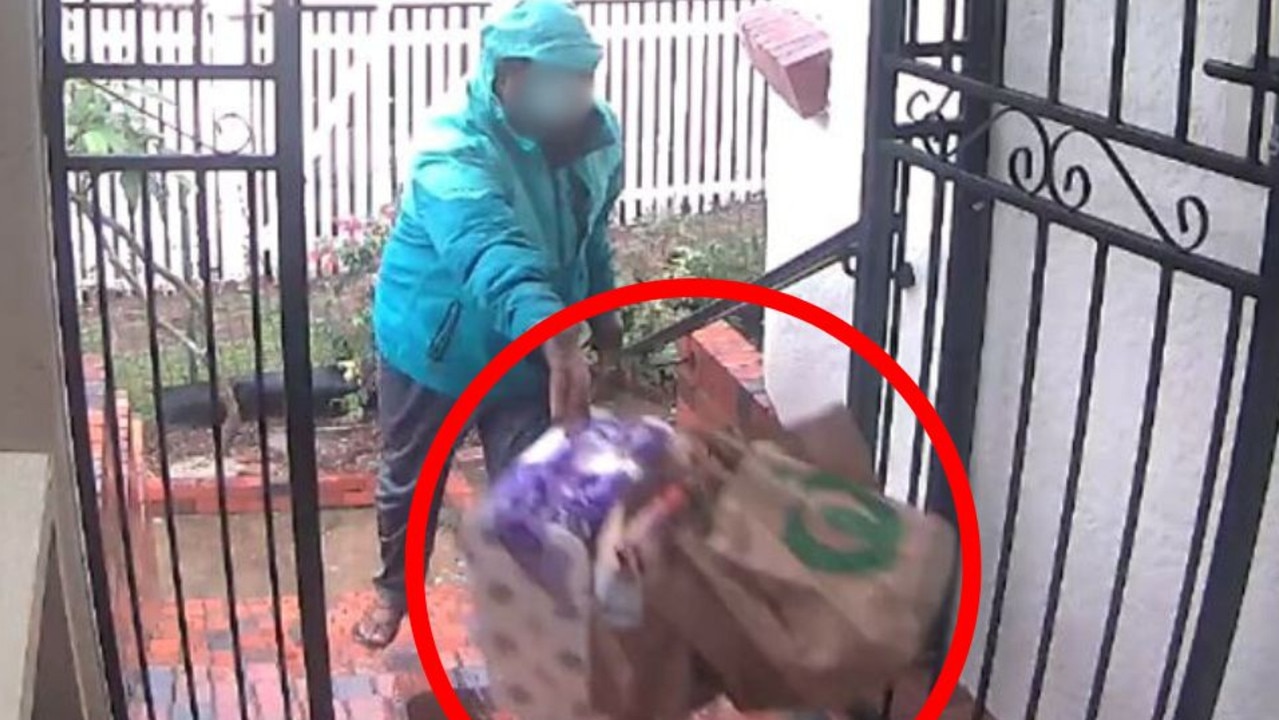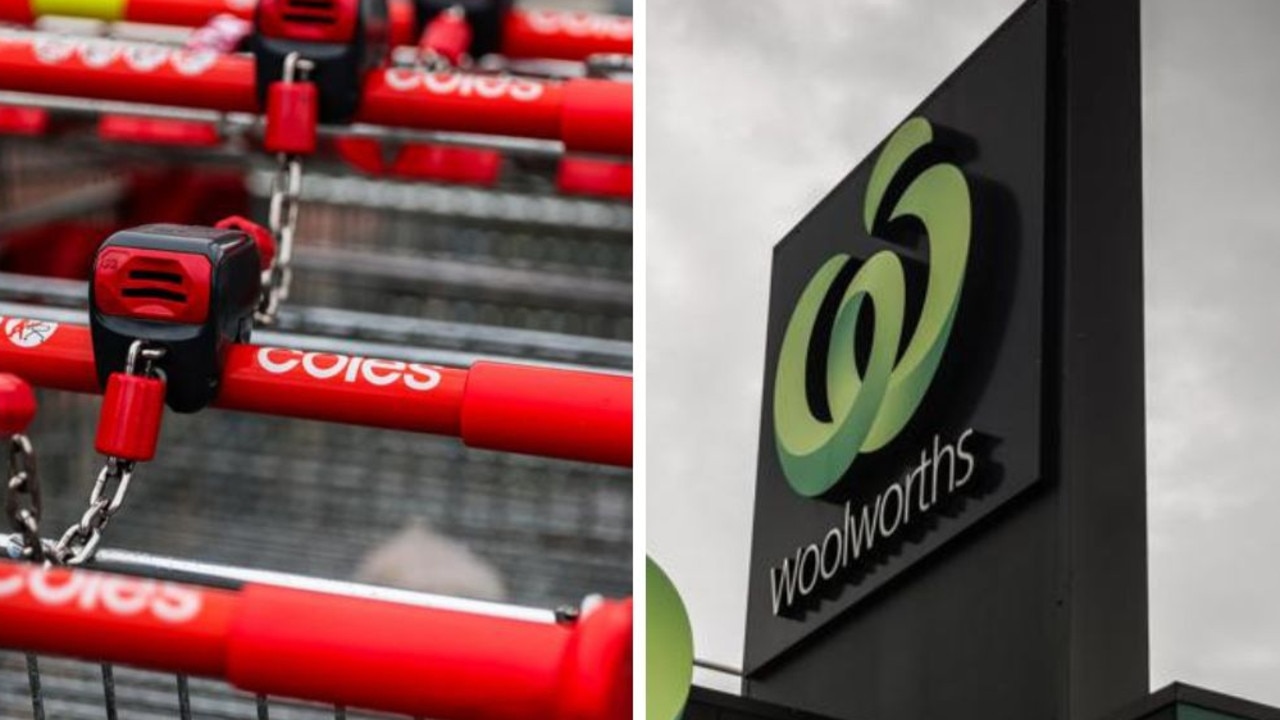Brisbane mum shares secrets to grocery stockpile
The Brisbane mum is “never paying full price” for food and now debt free after saving tens of thousands of dollars with this grocery move.
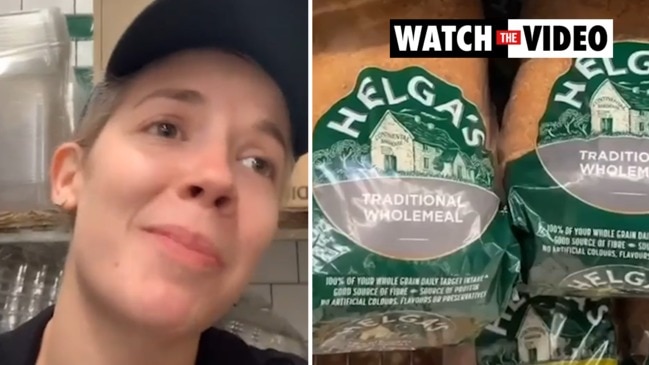
For this Brisbane mum-of-two, stockpiling food hasn’t just been about making sure she has enough food to get her through a pandemic.
Emily, who shares her frugal living journey on Instagram as @aussiedebtfreegirl and is pregnant with her third child, began stockpiling groceries over a decade ago out of necessity.
Unlike panic buying, stockpiling involves building up a supply of essentials slowly by strategically buying items when they are on sale.
“I’ve stockpiled basically the last 12 years since I moved out of home,” she told news.com.au. “It was a way when we were struggling that I knew everybody would get fed.”
In the beginning she would use plastic tubs to store the extra Black and Gold branded oats, pasta and tomato paste she had stocked up on.
Today she has dedicated shelves set up in her garage for her stockpile and estimates it has saved her “10s of thousands” of dollars.
RELATED: Mum’s $50 stockpiling survival plan
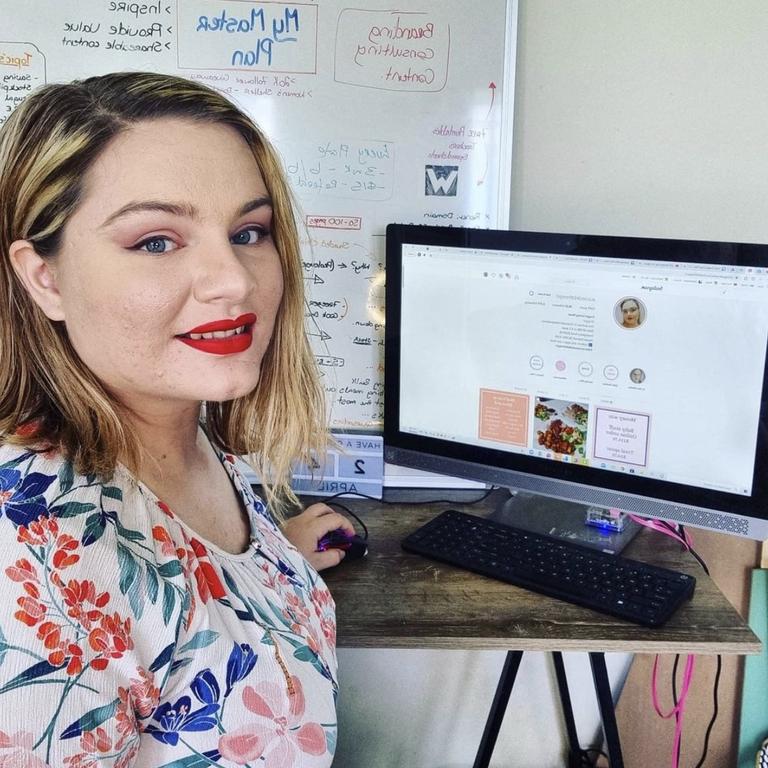
“It’s gotten us through three job losses, car break downs, becoming debt free, all sorts of things,” Emily said.
In March last year Emily and her partner had managed to pay off a whopping $60,000 in debt over four and a half years.
At the start of every week Emily, who has a weekly grocery budget of $100, will see what the half price specials are at Woolies and Coles using an app called Half Price.
She will shop at whichever supermarket has the best bargains of the week.
“It means I can keep our grocery budget super duper low because I’m never paying full price for anything that we eat, I’m buying on it on special,” Emily said.
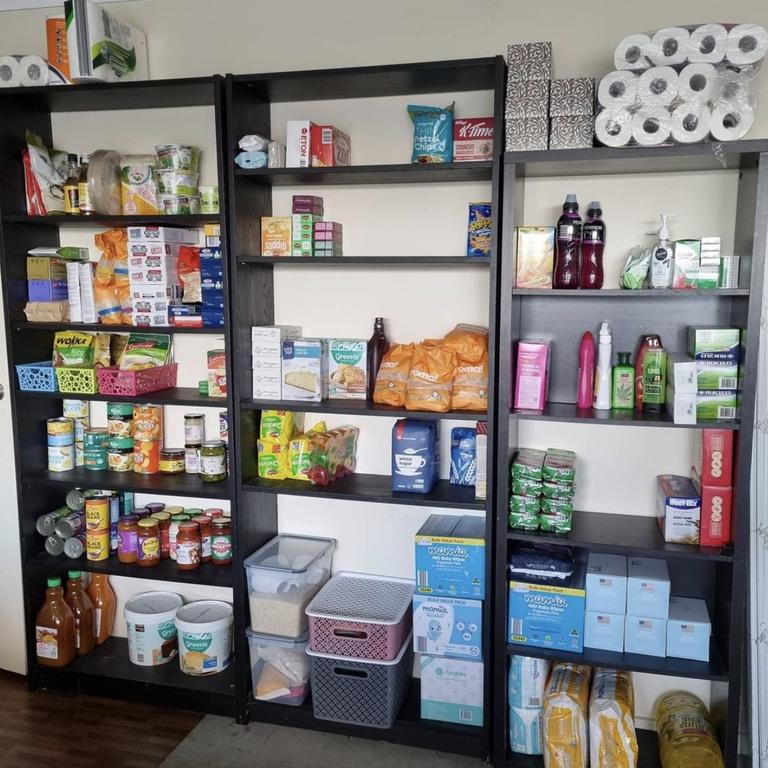
“Most specials are about six to eight weeks so I buy enough to get me through the eight weeks for my family until it comes up again.”
Emily doesn’t just source her stockpile supply from supermarkets and also keeps an eye out for specials at smaller retailers.
“Our butcher once or twice a year does chicken breast where it comes down to $5 a kilo when it’s usually $10 a kilo,” she said.
“So I buy between five and 10 kilos of chicken breast and then come home, chop it all up, put it into ziplock bags and meal sized portions and then freeze it.
RELATED: What bread and milk run for family of 16 looks like
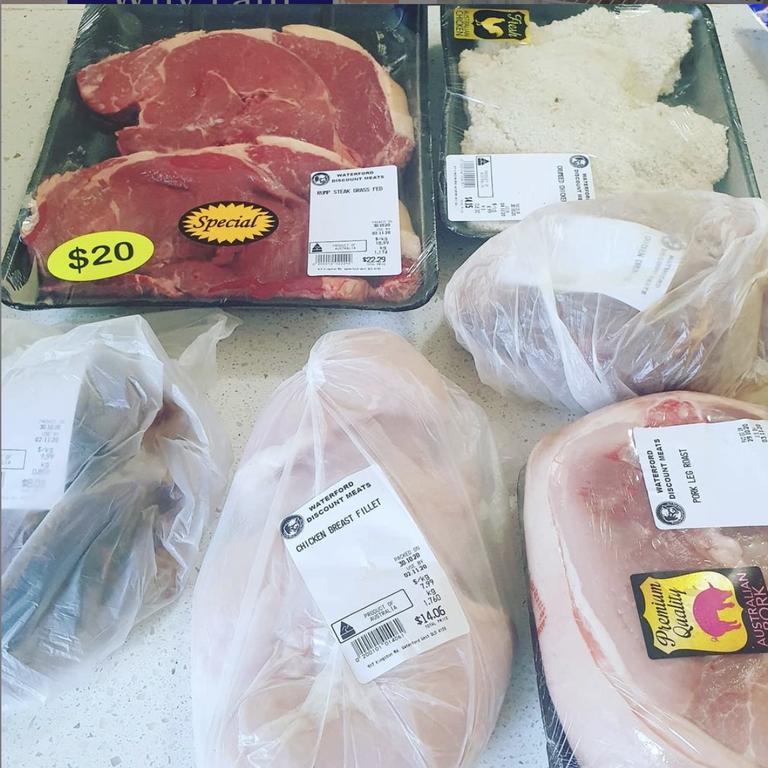
“Then we eat off that for the year for our chicken.”
Besides food, Emily will buy laundry powder when it is on special as well as making sure she has medical items like hand sanitiser, Dettol, Gatorade and Panadol stocked up.
“My son is actually immunocompromised, so it’s really important that we don’t go out too much when there’s a lot of sickness around,” she said.
Having a stockpile means that Emily can cut her grocery budget down to “just the basics” if an unexpected expense comes up.
“If the car breaks down tomorrow, no matter what happens I can cut our grocery budget down if needed to like $20,” she said.
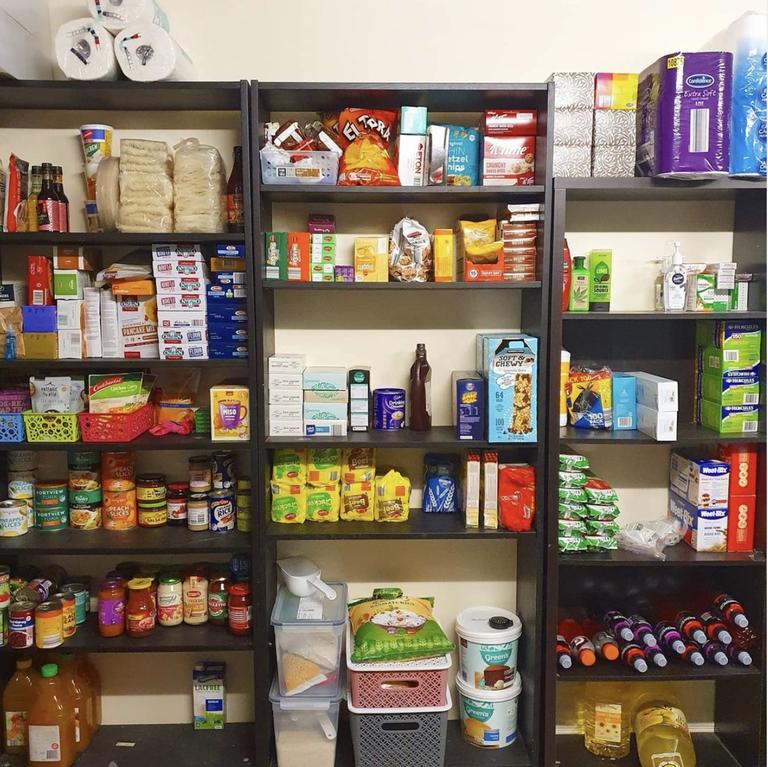
How to stockpile groceries successfully
1. Start off small
Emily recommends starting off small by purchasing a few extra in your grocery shop of pantry staples you use frequently.
“It starts with one or two items of what you eat a lot of,” she said. “ The main thing that I would recommend a lot of people start with are those basics like tinned dice tomatoes.”
2. Utlilise your budget
Using leftover funds to beef-up your stockpile can be a useful way to make sure you’re prepared, Emily said.
Emily has a grocery budget for her family four of $100 a week and any money she has leftover from that she puts towards stockpiling.
“If I come in under budget on my groceries then I will remember that I have $20, $12 whatever I have aside,” she said.
“I put that into a stockpile budget and I go, ‘OK I have $12, what I am going to buy with my $12 that’s going to serve me?’”
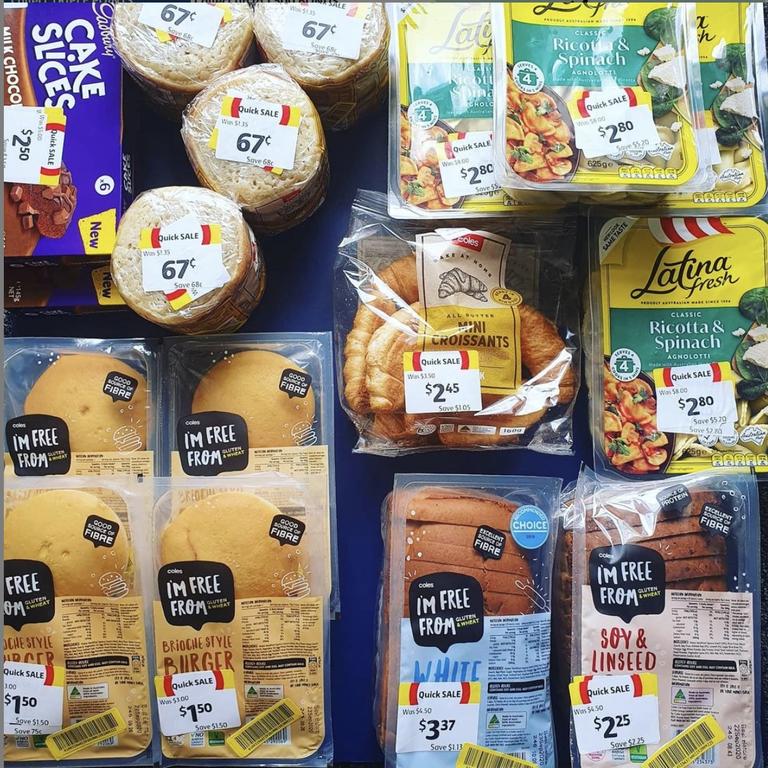
3. Don’t over buy food
One of the easiest mistakes to make when stockpiling is to buy food you won’t eat simply because it’s on special.
“So many people will go, ‘But it’s such a good deal but I don’t like this’,” Emily said.
“Don’t buy it if you’re not going to like it, you won’t eat it.”
Stockpiles don’t need to be big either – they can be as simple as a couple of extra supplies of staples like flour, sugar and rice.
“You don’t have to have a stockpile with everything you need for your family to eat for an entire month,” Emily said.



